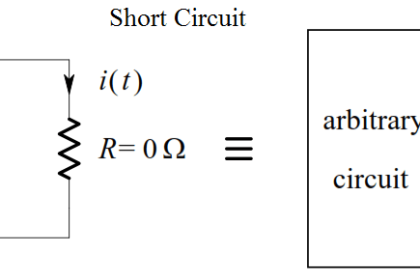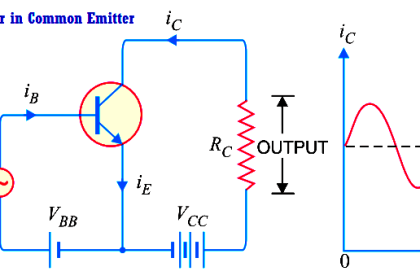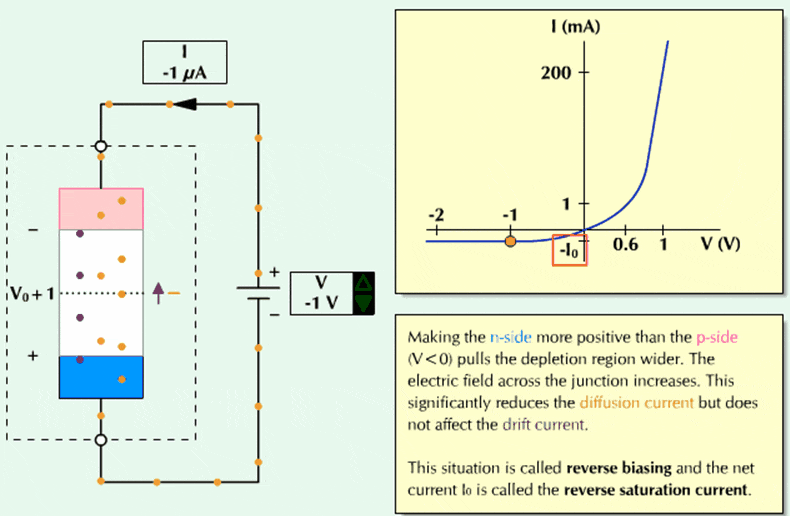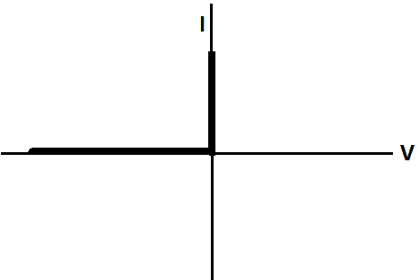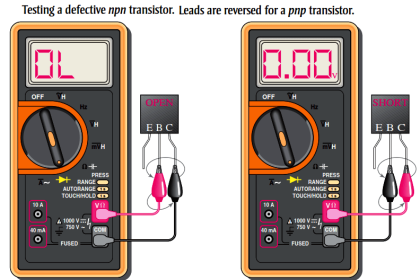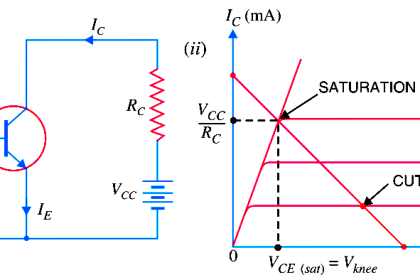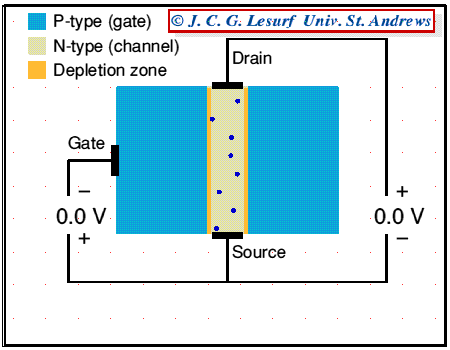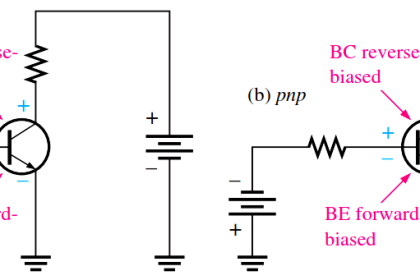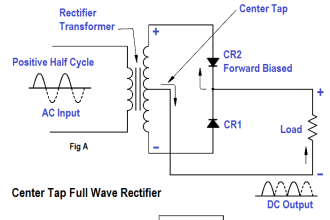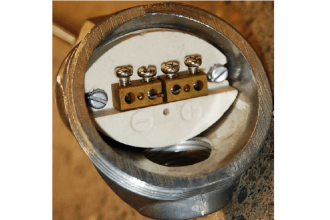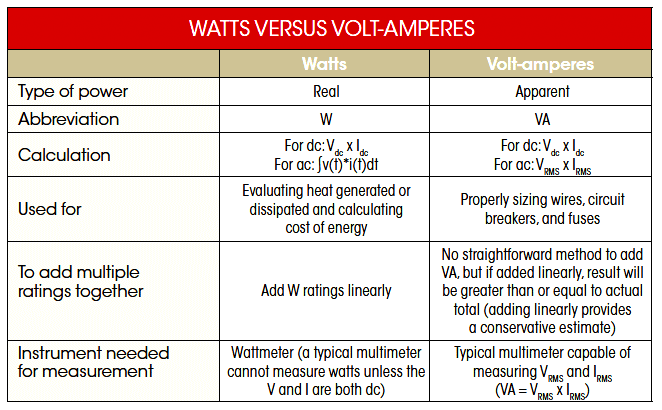A LED that emits one colour when forward biased and another colour when reverse biased is called a multicolour LED.
One commonly used schematic symbol for these LEDs is shown in below figure.
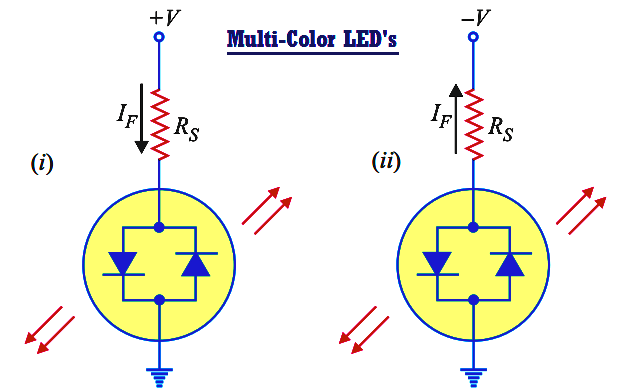
Multi Color LED’s actually contain two pn junctions that are connected in reverse-parallel i.e. they are in parallel with anode of one being connected to the cathode of the other.
If positive potential is applied to the top terminal as shown in Fig. (i), the pn junction on the left will light. Note that the device current passes through the left pn junction.
If the polarity of the voltage source is reversed as shown in Fig. (ii), the pn junction on the right will light. Note that the direction of device current has reversed and is now passing through the right pn junction.
Multicolour LEDs are typically red when biased in one direction and green when biased in the other. If a multicolour LED is switched fast enough between two polarities, the LED will produce a third colour.
A red/green LED will produce a yellow light when rapidly switched back and forth between biasing polarities.
